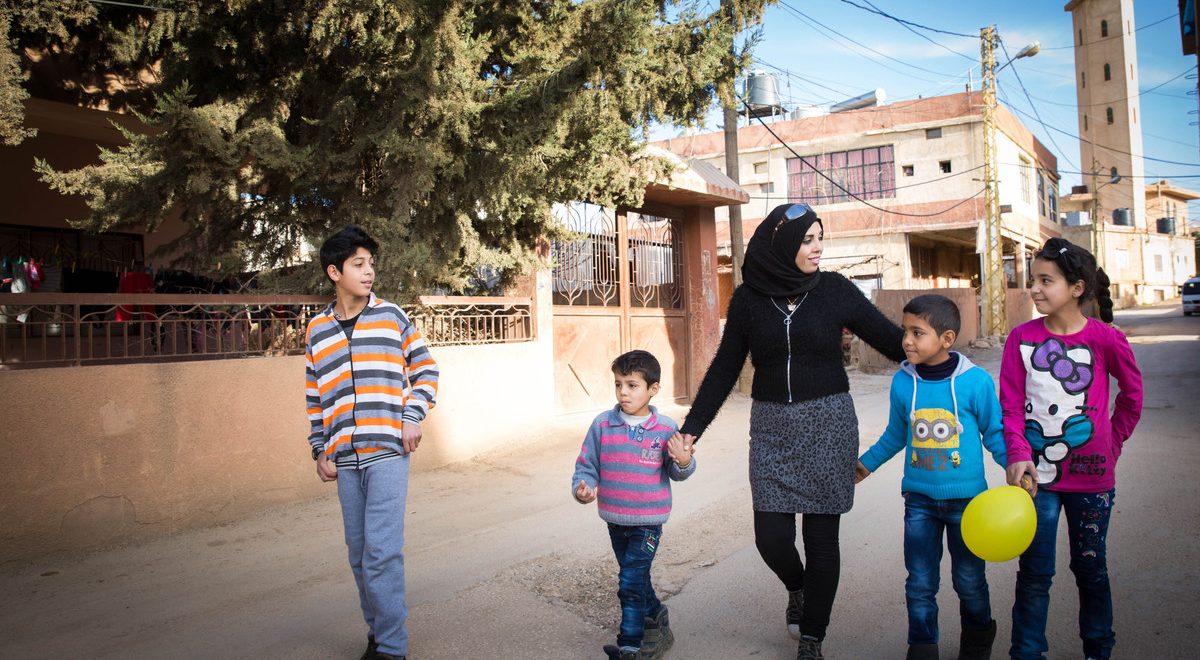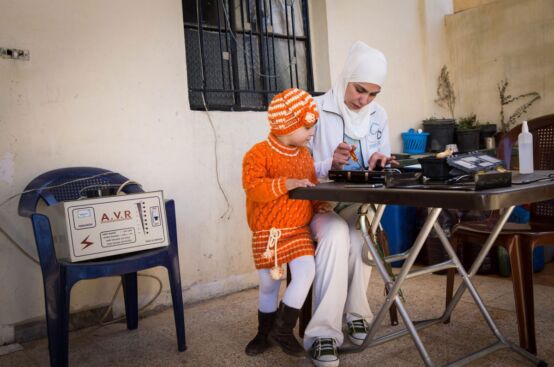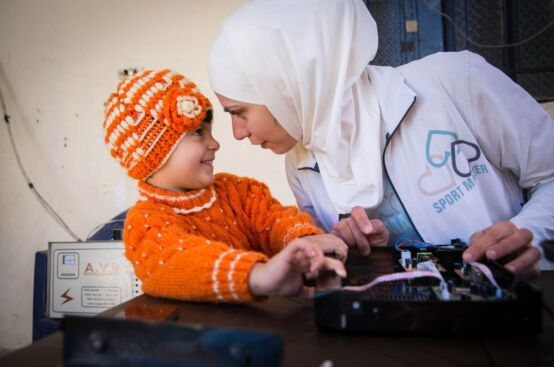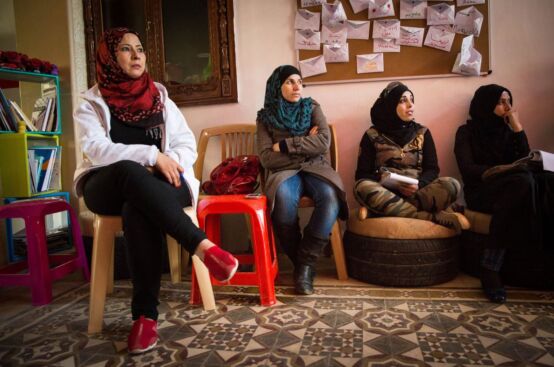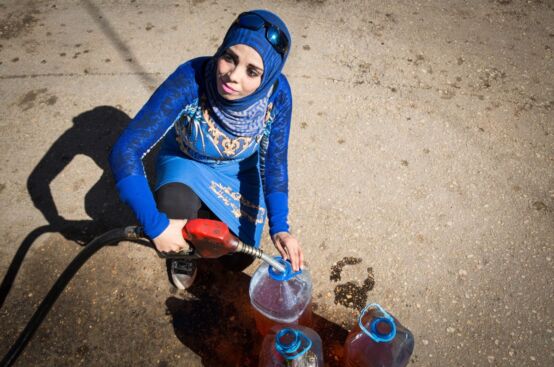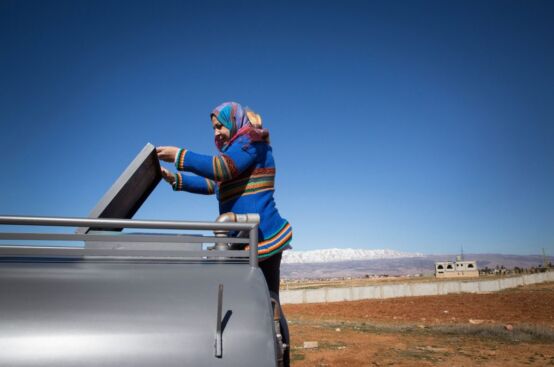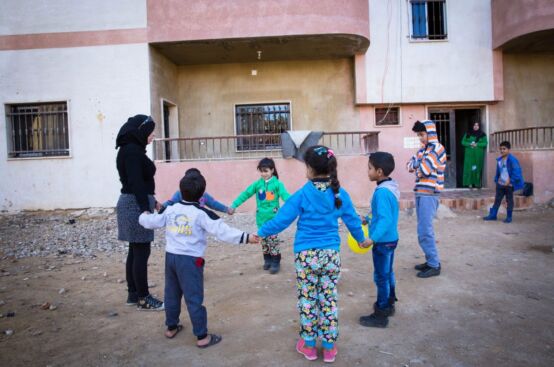More than 400,000 people have lost their lives during the Syrian Civil War. Hundreds of thousands more have fled Syria, undertaking the long and often grueling journey to neighboring countries in their search for safety.
But when they arrive, their struggle is far from over. Many refugees from Syria are highly educated and highly skilled, but they often face a long wait for the necessary paperwork that allows them to work.
They can face huge challenges fitting into a new culture, with different languages, traditions and ways of life.
In Baalbeck, a town in Lebanon, Syrian women refugees are breaking gender stereotypes and learning new skills that they are putting to use to support their families.
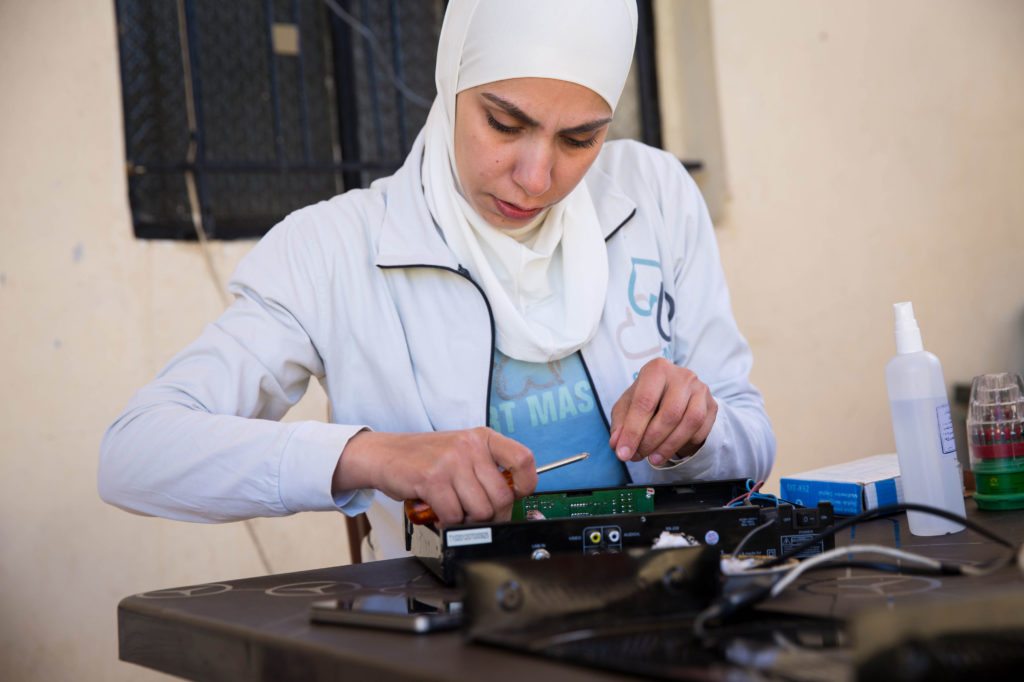
Bushra fixes an electronic product. Photo: Celia Peterson/ActionAid
Having received training provided by ActionAid, Bushra keeps herself busy fixing electronic products.
“I like to discover what is inside electric devices and so on. I find myself with free time and nothing to do, so when things break at home, I immediately begin working.
“The role of an electrician is mostly for men. But it shouldn’t be exclusively for men. Why should it be them only? We can work even better than them. A woman can concentrate more in such matters, paying attention to fine points.”
Support Refugees Seeking Safety.
We support refugee families across affected areas, providing emergency supplies and helping children who have been traumatized. Your donation to ActionAid USA is an investment in local problem solvers.
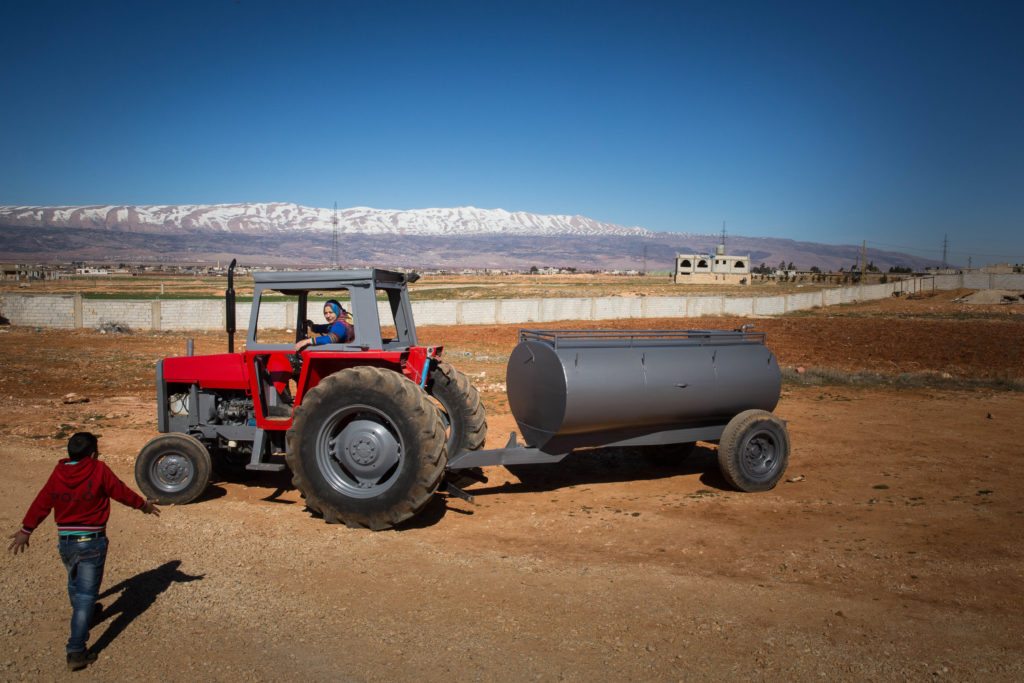
Ghroub delivers water to neighbors. Photo: Celia Peterson/ActionAid
Ghroub was the manager of a research center in Homs when the fighting started. She fled Syria with her husband and three children, and they made their way to Baalbeck.
Keen to learn new skills to support her family, Ghroub joined the ActionAid training program. She now lives on a small farm owned by a family friend and drives a tractor, delivering water to her neighbors. For each truckload, Ghroub receives just over $3, money that comes in handy for looking after her family.
“When we came to Baalbeck, I isolated myself with my kids for almost 6 months, I was really depressed. After a while, I started working on the farm. As my husband was away some of the time, I ended up driving the truck and selling the water in the neighborhood.
“The men in the neighborhood are surprised seeing me drive the truck. Women are equal to men, we are sisters of men. In my family we are all equal.”
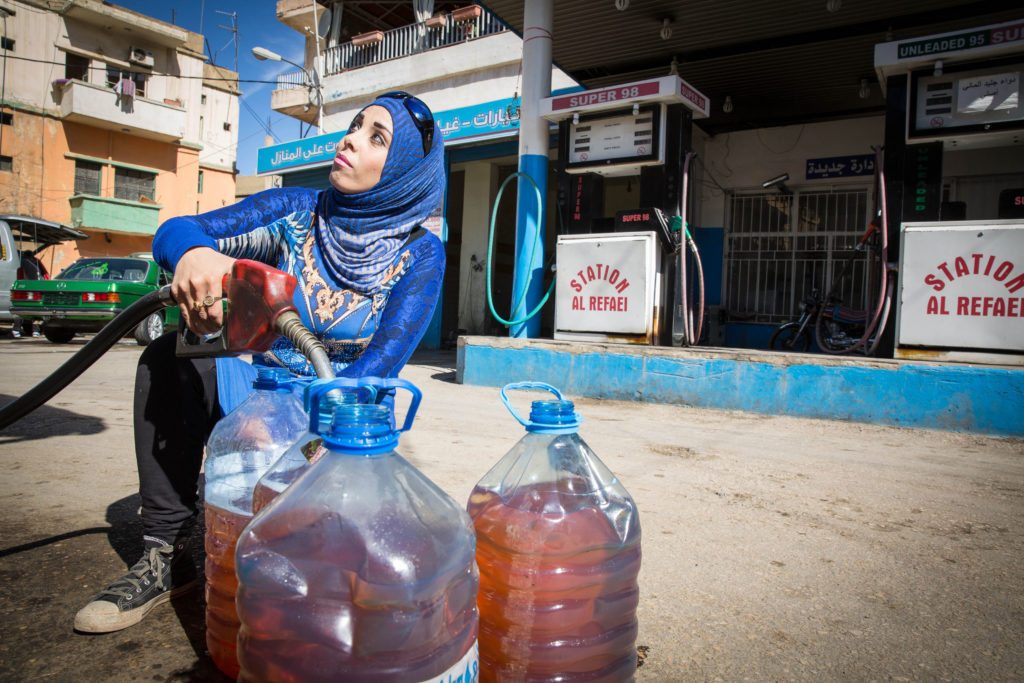
Amira distributes fuel to refugees. Photo: Celia Peterson/ActionAid
Amira is from Daraa in Syria. She fled to Baalbeck when the fighting started, fearing the safety of her 5 young children. She now works at a local gas station distributing fuel to refugees.
“The men smile and laugh when they see me working at the gas station. When you practice this kind of job, you have the feeling you are empowered.
“When I left Syria, I was so scared about how I would live alone, sleep alone in the garage at night with my kids. Now I don’t care, I can work and walk around, and I don’t worry.”
